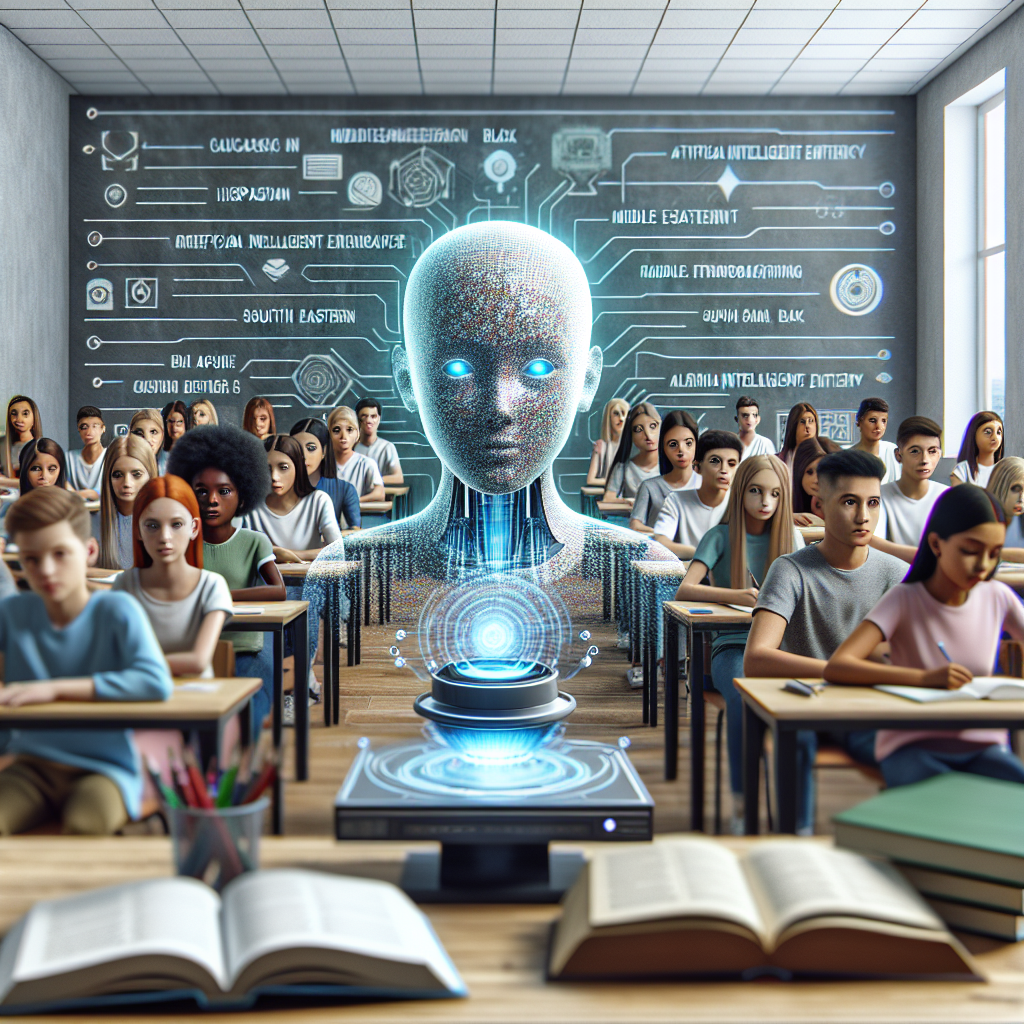Artificial Intelligence (AI) is rapidly transforming various industries, and education is no exception. With the advancement of technology, AI is being increasingly integrated into educational settings to enhance learning opportunities for students. From personalized learning experiences to automated grading systems, AI is revolutionizing the way students learn and teachers teach. In this article, we will explore the role of AI in education and how it is shaping the future of learning.
AI in Education: Enhancing Learning Opportunities
AI has the potential to revolutionize the traditional education system by providing personalized learning experiences for students. With AI-powered tools, educators can tailor learning materials to the individual needs and preferences of each student. This ensures that students receive the support and resources they need to succeed, regardless of their learning style or pace.
One of the key benefits of AI in education is its ability to analyze data and provide insights that can help teachers improve their teaching methods. By collecting and analyzing data on student performance, AI can identify patterns and trends that can inform instructional strategies. This data-driven approach allows teachers to make informed decisions about how to best support their students and address their individual learning needs.
Another way AI is enhancing learning opportunities in education is through the use of virtual tutors and chatbots. These AI-powered tools can provide immediate feedback to students, answer questions, and offer personalized support. Virtual tutors can help students practice and reinforce their learning, while chatbots can provide instant assistance with homework and assignments. By leveraging AI technology, students can receive the support they need to succeed in their academic pursuits.
AI is also being used to enhance the assessment and grading process in education. Automated grading systems powered by AI can quickly and accurately evaluate student work, providing timely feedback to both students and teachers. This not only saves time for educators but also ensures that assessments are fair and consistent across all students. AI-powered grading systems can also identify areas where students may be struggling and provide targeted interventions to help them improve.
Furthermore, AI is enabling the creation of adaptive learning platforms that can adjust the pace and difficulty of lessons based on individual student performance. These platforms use algorithms to analyze student data and provide personalized recommendations for learning activities. By adapting to the needs of each student, adaptive learning platforms can help students progress at their own pace and achieve their learning goals.
In addition to personalized learning experiences, AI is also transforming the way educators deliver content to students. Virtual reality (VR) and augmented reality (AR) technologies powered by AI are being used to create immersive learning experiences that engage students and enhance their understanding of complex concepts. These technologies allow students to interact with virtual environments and simulations, making learning more interactive and engaging.
Overall, AI is revolutionizing education by enhancing learning opportunities for students and empowering educators with data-driven insights and tools. As technology continues to advance, the role of AI in education will only continue to grow, providing new and innovative ways to support student learning and improve educational outcomes.
FAQs
Q: What are the potential benefits of AI in education?
A: AI in education offers several benefits, including personalized learning experiences, data-driven insights for educators, virtual tutors and chatbots for student support, automated grading systems, and adaptive learning platforms.
Q: How can AI help improve student performance?
A: AI can help improve student performance by providing personalized learning experiences, identifying areas where students may be struggling, offering immediate feedback and support, and creating immersive learning experiences through VR and AR technologies.
Q: What are some examples of AI-powered tools in education?
A: Some examples of AI-powered tools in education include virtual tutors, chatbots, automated grading systems, adaptive learning platforms, and VR and AR technologies.
Q: How can educators leverage AI in their teaching practices?
A: Educators can leverage AI in their teaching practices by using AI-powered tools to personalize learning experiences, analyze student data, provide immediate feedback, and create immersive learning experiences for students.
Q: What are the challenges of implementing AI in education?
A: Some challenges of implementing AI in education include the need for adequate training and support for educators, concerns about data privacy and security, and ensuring that AI-powered tools are accessible and equitable for all students.
In conclusion, AI is revolutionizing education by enhancing learning opportunities for students and empowering educators with data-driven insights and tools. As technology continues to advance, the role of AI in education will only continue to grow, providing new and innovative ways to support student learning and improve educational outcomes. By leveraging AI technology, educators can create personalized learning experiences, improve student performance, and engage students in new and exciting ways.

